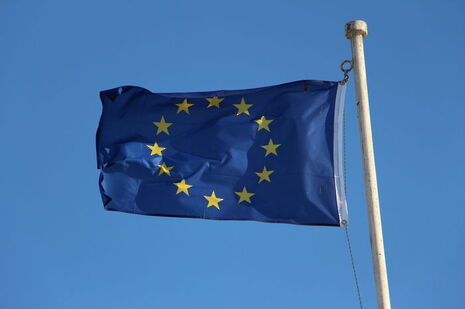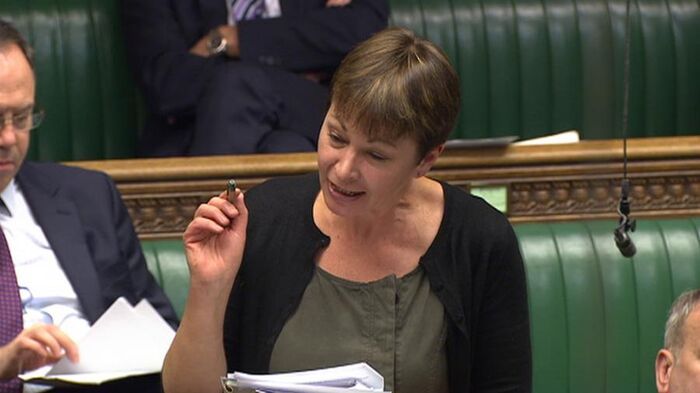Brexit, the environment and immigration dominate European Elections hustings
Representatives from seven of the major parties were questioned on a second referendum, environmental policy and the refugee crisis

Hustings for the upcoming European Elections were held in Great St Mary’s Church on Thursday.
Representatives from seven of the major parties - Labour, the Liberal Democrats, the Conservatives, UKIP, the Green Party, Change U.K. and the Brexit Party - and one independent candidate discussed topics including Brexit, the environment and immigration.
The European Elections will take place on Thursday 23rd May. Each major party has put forward seven candidates, who will be selected in order according to the proportion of the popular vote their party receives.
Cambridge is part of the Eastern Region, which elects seven MEPs. Three of the seven seats are currently held by the Conservatives, with the other four split between Labour, UKIP, the Brexit Party and the Social Democrats. Stuart Agnew, the current UKIP MEP, is re-running for his seat.
The first issue discussed on Thursday was the possibility of a second referendum. Most of the candidates were in favour, with Liberal Democrat candidate Lisa Nethsingha asking: “How can voting again be anti-democratic?”
Neil Carmichael, one of the candidates for Change UK and a former Tory MP, argued that a second referendum with remain as an option was necessary.
Alvin Shum, representing Labour, acknowledged the ambiguity of Labour's position on Brexit, joking about the difficulty of summarising it in a minute. However, he clarified that he personally supported a deal, but only following a confirmatory referendum with remain as an option.
However, three of the candidates were opposed to a second referendum. Edmund Fordham, for the Brexit party, stated that his party stood for “delivering the result of the largest democratic majority in this country”.
Tom McLaren, of the Conservatives agreed, arguing that the result of the referendum should be followed “even if you don’t believe in it”.
Climate change was also discussed. Catherine Rowett, for the Greens, said that voting her party into the European Parliament would help strengthen the environmental movement across the continent, adding that she hoped to achieve carbon neutrality by 2030.
McLaren stressed that he felt successes had already been achieved under the Conservative government since 2010, but admitted that they have not gone far enough.
In contrast Agnew began his speech by declaring himself a climate denier, while Fordham was unable to articulate any policy on climate change, except to say that it was “a matter of debate”. This prompted Carmichael to say that “the Brexit party has no policies whatsoever”.
Carmichael stated that, since the EU represents one-fifth of global GDP, a properly designed and implemented regulatory framework would have a real impact on global emissions.
Immigration was also discussed. There was agreement across the spectrum that greater clarity was needed when distinguishing between freedom of movement, immigration and refugees, as they cannot simply be lumped together.
Nethsingha criticised the U.K. for not doing enough in response to the refugee crisis, saying that she is “ashamed of the number of refugees we have taken”, while Rowett attacked the hypocrisy of the U.K. engaging in the arms trade and then not accepting refugees.
Agnew disagreed with the argument that the U.K. should take more refugees, suggesting that foreign aid should instead be spent on building refugee camps near areas of conflict.
McLaren agreed that the best policy for dealing with refugees was to stop the conflict from which they are escaping rather than settling them in Europe.
Agnew also stated his belief that the government should be able to control who is able to come into the U.K., while Shum expressed support for freedom of movement.
The hustings ended up with a question about how to bring the country together after Brexit. Most of the participants accepted the difficulty of this, with Agnew saying that “these things take time to heal”.
Rowett suggested that the Greens would go around the country listening to the concerns which prompted people to vote leave. She specified that “we won’t say bollocks to anybody”, in allusion to the Liberal Democrats’ campaign slogan.
The only candidate who suggested that there might be an easy answer was Fordham, who pointed to “respect for the ballot box” as the best way to secure unity.
 News / Hundreds of Cambridge academics demand vote on fate of vet course20 February 2026
News / Hundreds of Cambridge academics demand vote on fate of vet course20 February 2026 News / University Council rescinds University Centre membership20 February 2026
News / University Council rescinds University Centre membership20 February 2026 News / Judge Business School advisor resigns over Epstein and Andrew links18 February 2026
News / Judge Business School advisor resigns over Epstein and Andrew links18 February 2026 News / Petition demands University reverse decision on vegan menu20 February 2026
News / Petition demands University reverse decision on vegan menu20 February 2026 News / Caius students fail to pass Pride flag proposal20 February 2026
News / Caius students fail to pass Pride flag proposal20 February 2026










